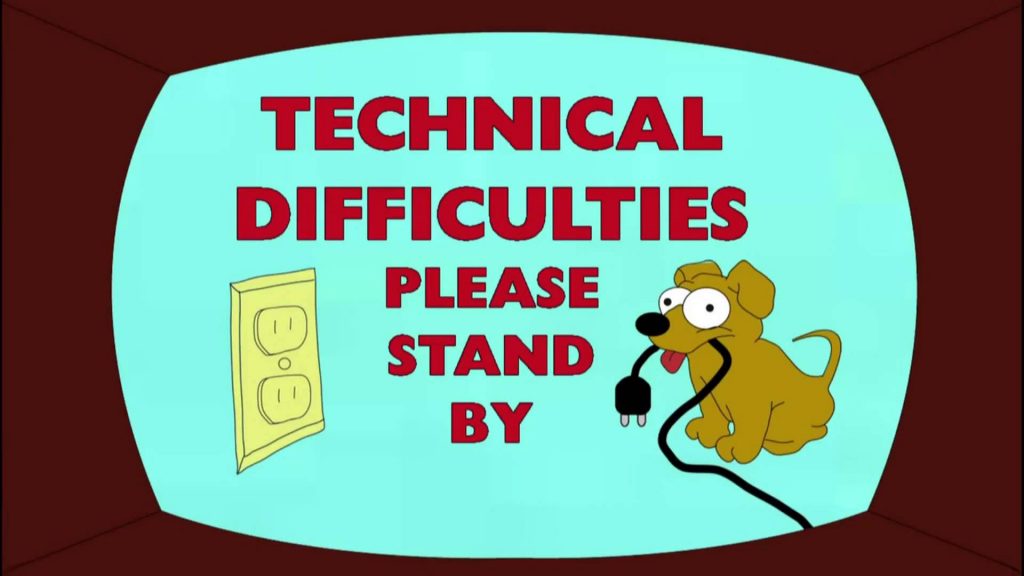Join the Philosophy Department tomorrow,. Monday (10/17) in the Strange Lounge of Main Hall (103), 4:30-5:30pm for refreshments and informal conversation. This Monday, October 3, we will discuss debates surrounding fetal personhood laws.

For this Strange Philosophy Thing, we’ll be discussing the recent trend of fetal personhood laws. Specifically, we’ll look at possible legal and policy implications, and discuss the ethics of those policies. Here are a few examples of the kind of thing I want to discuss:
Georgia’s state department of revenue has extended the state’s tax exemptions for dependents to include gestating fetuses.
A Texas woman claimed the fetus she was gestating counted as a second passenger, allowed her to drive in the carpool lane.
Women are charged under child abuse or endangerment statutes, for behaviors including drug use while pregnant. (This specific example, however, does not depend on a fetal personhood law.)
Evaluating the ethics of law and policy is complicated, and doesn’t easily connect to the ethics of the behavior being regulated. Breaking promises is typically wrong, but it would be a mistake to legally require everyone keeping their promises. We only do this for special cases, such as contracts. Driving on the left side of the road is not in itself wrong, but legally prohibiting it is completely appropriate.
Sometimes the ethical status of a law or policy depends on its relation to other things in the hierarchy of laws, such as compatibility with a State’s or the federal Constitution. But if this is all there is to it, then the problem may not be the otherwise sensible subordinate law, but the but the superior law that it conflicts with. Certain gun control regulations are (arguably) an example of this.
Sometimes a law or policy is intrinsically wrong, such as those that allow partisan gerrymandering. This is wrong by its very nature, since its nature is to disenfranchise equal citizens because of their political viewpoints.
Sometimes a law or policy is instrumentally or contingently wrong. This is when there is nothing intrinsically wrong with the policy, but the effects it has in the world are unacceptable. An example of this is voter ID laws. There is nothing wrong in principle with requiring identification to vote. Voter fraud is worth preventing because each case of voter fraud functionally removes one valid vote. But in practice, these laws have several negative effects. First, they prevent more eligible voters from voting than they prevent cases of voter fraud. So when we look at the rationale for such laws (the ethically acceptable rationale, whether or not it’s the actual motivating rationale), it is inappropriate for being self-defeating. It’s worse if more valid voters are removed through ID laws than if fewer are neutralized through fraud. Second, the discouraging or preventing effects are concentrated on already marginalized groups of people (racial and ethic minorities, lower economic classes).
Sometimes a policy that would be otherwise problematic is actually fine because of the outcomes it has. One example might be the pandemic relief funds that were sent out to individuals (oversimplified to serve the example). It’s problematic (regressive economic policy) to send the same amount of money to people at all points on the economic spectrum, because a large portion of that money is not needed and so is wasted. It would be better to target the relief to those who would benefit from it the most, since this would help them more. But this targeting would be costly, difficult, and slow, so the people we want to help avoid harm will be harmed while we try to figure it out. So, it is better overall to give the economic help faster but less efficiently targeted.
Or, it might not be a single law or policy that is problematic, but a cluster of them that are together problematic. Consider: while the right to abortion was constitutionally protected, Louisiana passed a law requiring abortion providers to have admitting (patient transfer) privileges at a hospital within 30 miles. While that’s a single law (deemed unconstitutional at the time for lack of medical benefit, violating the undue burden requirement on abortion restrictions), we could imagine passing a second law that prohibited hospitals from giving admitting privileges to abortion providers. Even if we didn’t find either law objectionable in isolation, we might find the conjunction objectionable. (This isn’t the cleanest example, but it was the easiest (realistic) one for me to think of at this point.)
I want to consider implications of fetal personhood laws in this light (or, the last four lights). Or, the implications of other laws and policies in light of fetal personhood laws.
What policies might have intrinsically problematic effects?
What are the points and purposes of these laws? How do the effects of these policies (or the ones we should expect them to have) relate to those rationales?
Are there any effects that are problematic, independent of how they relate to the policy’s rationale?
Take the suggestion that driving pregnant makes you eligible for carpool lanes. The point of these laws is to reduce traffic congestion and auto emissions by encouraging people going to and from the same or close places to travel in fewer vehicles. They do this by giving access to a special lane that is (supposed to be) less crowded, allowing you to get where you’re going faster. And so they specify “high occupancy” thresholds, and (from my quick research) these typically specify the number of seats filled rather than the number of persons in the vehicle.
This excludes fetal persons from counting towards HOV requirements for carpool lanes. Is there something intrinsically problematic for excluding this class of person? It’s hard to see what that would be. Is there something contingently problematic about excluding them? By looking at the point of carpool lanes, it seems like there would instead be something problematic about including them. Pregnant people cannot travel separately from the fetuses they gestate, and so having them travel together does not reduce the numbers of cars on the road (congestion, emissions). This adds a car to the carpool lane (slowing it down), without removing an extra car from the other lanes. So counting them towards HOV eligibility would work against the purpose of the law.
We also have to think about similar cases. What about family or friends who would be driving together even without carpool incentives? It makes sense to allow these passengers because if we did not, sorting out the good cases from the bad cases would be unduly invasive for the purposes of the law. Similarly, if we did count fetuses as passengers for HOV purposes, having HOV levels about two might be problematic because sorting out which people have single pregnancies and which have twins (or more!) would be unduly invasive. (I think this further counts against considering fetuses as separate passengers, rather than counting in favor of capping HOV requirements at two.)
So, I want to talk about policies like the dependent tax exemption and gestational child abuse examples above, but also “safe surrender” (“infant relinquishment”) allowances, and adoption and surrogate pregnancy. The article on the Georgia law also raises questions about child support policies. We might also discuss in vitro fertilization and unused zygotes.
If there are any policies that you think might have interesting (problematic or just unexpected) implications given a fetal personhood law, we can talk about that as well.
“Is a Fetus a Person? The Next Big Abortion Fight Centers on Fetal Rights,” Kelsey Butler and Patricia Hurtado, Bloomberg (linked at Washington Post)
“Georgia says ‘unborn child’ counts as dependent on taxes after 6 weeks,” María Luisa Paúl, Washington Post
“Pregnant woman given HOV ticket argues fetus is passenger, post-Roe,” Timothy Bella, Washington Post
“Pregnant women were jailed over drug use to protect fetuses, county says,” Marisa Iati, Washington Post
‘Safe Surrender’ or ‘Infant Abandonment’ Legislation,” ACLU








